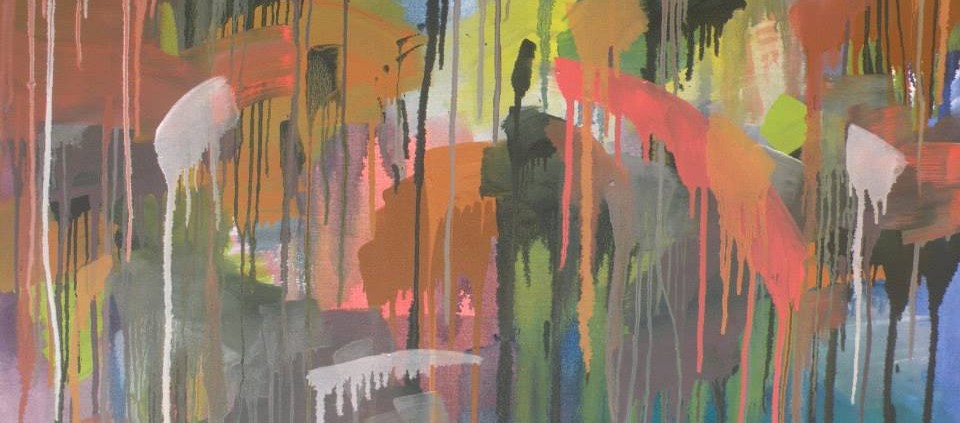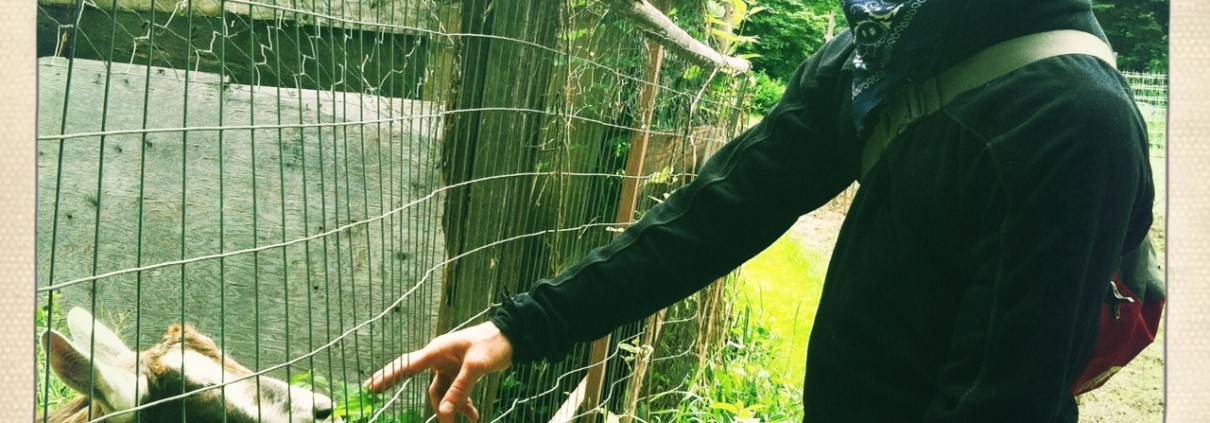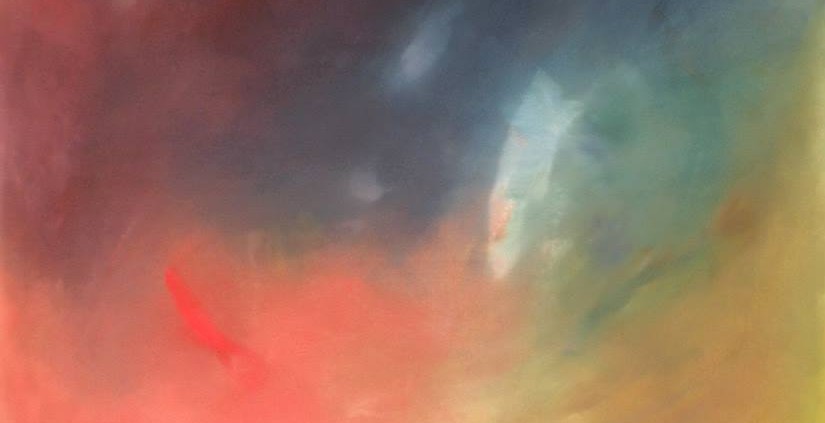I ran my first marathon this weekend. This is something I’ve always thought I would do, but I had never really considered a realistic possibility until the last couple years. Before three years ago, I don’t think I had ever run more than about 6 miles in one go. Since then, my perceptions and expectations about running have gradually shifted, and I finished the race in 2:56:27, about 20 minutes faster than I had planned.
My thinking about running started to change when I trained for a half-marathon with friends a couple years ago. The idea was to build up mileage slowly until 13 miles didn’t seem like a big deal. We started with a 5 mile run on the weekend (along with a couple shorter runs during the week), and added a mile to that each week. When we got to 9 miles, I couldn’t believe how doable it was. Not necessarily easy, but nowhere near as bad as I had expected. (Around the same time, I got a new pair of running shoes which almost immediately eliminated joint pain I had always experienced running. There was obviously still muscle soreness, but that is way more manageable than knee and hip pain. This was a revelation.) Then 10 miles, and 11, no big deal. I ended up even doing a 13.5 before the 13.1 race, so I knew what to expect.
I used a similar strategy for the marathon, but started with a stronger base and went further. My plan was to start at 8 and add a couple miles each week until I had done a 22 mile run. This sounds like a crazy distance to run, but I gradually taught myself not to be afraid of it. I knew I could do 13, so when my 14 miler came along, it wasn’t such a big deal. 16 isn’t that much more than 14. 18 isn’t that much more than 16. The bottom line here: we can get used to anything, it just takes time. I might also be kind of a freak. Except then my training schedule got derailed a little bit and I didn’t end up running anything longer than 18 before the marathon. I figured it would be fine, though. The biggest problem I’d had on my long runs was getting really hungry and thirsty, which I would manage a lot better at the race. I was also doing a lot of yoga, rock climbing, and weight lifting for cross training, so I thought that might help.
The run itself turned out to be fantastic. It was the Eugene Marathon, which is really flat (as opposed to hilly Seattle where I trained). I had the added bonus of being familiar with (and nostalgic about) the course because it was all along the trails I ran and biked on when I lived there for grad school. And the weather was perfect: overcast and 60 degrees until the last stretch. I did a really good job of eating well, staying hydrated, and sleeping in the days leading up to the run – no coffee for 3 days, no alcohol for a week, 7 hours the night before despite 5 am wake up. Race morning I had a solid (but light) breakfast, had a well-timed bowel movement (crucial), and caffeinated just the right amount (best performance-enhancing drug).
I put a lot of focus on mental preparation as well. I know from experience (ultimate frisbee, mostly) that I perform a lot better when I’m happy and psyched. Leading up to the race, I was excitedly nervous for several days. I concentrated on the excited part of this and let the nervous part drift away. I wrote “HAVE FUN” and “PRACTICE GRATITUDE” on my hands before the race, and I made sure to thank all the traffic enforcement along the way (until mile 24 when I couldn’t do anything). I wore pink knee-length tights under my blue running short-shorts, neon-yellow mesh tank top and shoes, and a red, white, and blue headband, which all got a lot of cheers from the folks watching the race. All these things kept people smiling at me, which kept me smiling and happy and excited. I meant to make a duct tape name tag reading “VELOCISAPIEN”, but couldn’t find duct tape at the last minute. Somebody’s stereo was blasting Macklemore’s Thrift Shop at mile 19, which gave me an extra boost because most of my outfit actually was from Goodwill.
This all worked pretty much perfectly, and most of the run went smoothly. On the shuttle to the start line I met a guy celebrating his 60th birthday with the full marathon. Super inspiring. Once we got moving, I was a little worried about coming out too fast when people around me started talking about the pace, but I felt good so I didn’t slow down. At 11 miles the full and half marathons separated, so there was a lot more space. I ended up PR’ing my half marathon time by four and a half minutes, and still felt good. I met a guy running with me who was doing his twenty-third marathon. Holy crap. He was skeptical that I was doing this pace for my first marathon, but he said that I was keeping it consistent, which was a good sign. That guy was great, and I tried to keep him in my sights as long as I could (he probably finished a minute and a half or so before me). Miles 14-18 were euphoric. I had the total sensation of “runner’s high.” My legs didn’t hurt, I was just filled with excitement and happiness and gentle tingling. I kept eating gels and trying to drink two waters at each station and had a banana.
So eventually I found myself at the 20-mile marker having kept almost exactly a 6:39 min/mile pace throughout and feeling really happy about where I was (I wore a watch to measure my speed, but couldn’t figure out how to get it to display min/mile, so I was actually looking at miles/hr the whole time. Luckily by mile 20 I had figured out what that meant). My long training runs had been at a 7:30-7:35 min/mile pace, which I why I was aiming for about a 3:15:00 finish, but secretly I thought I could do it faster. So, after 20 miles I was on pace for about 2:54:30, and I knew I’d clear 3 hours as long as I didn’t blow it.
But here’s the thing: the last 6 miles of this run were REALLY hard. Like, one of the hardest physical endeavors I’ve experienced. My legs were done. I wasn’t getting any spring from my muscles, just drag. My stomach was really confused and I was constantly on the cusp of being out of breath so I couldn’t take the time to drink water from the stations. I ended up just throwing it in my face and on my head, which actually felt wonderful. My smile started to turn into more of a slack-jaw, and I can’t imagine I looked very good (my number 2 goal, behind actually finishing the race).
But I kept going, and started focusing on a meditation technique I had practiced. Basically, it is a Tibetan Buddhist visualization I read about in Matthieu Ricard’s Happiness, which involves engulfing yourself in a sweet, healing nectar. As your own pain and suffering diminishes, you are better able to spread this cessation of suffering to others. I modified this slightly to visualize myself being pushed by a river of healing water, sweet and cool and calming, whisking me along effortlessly. Maybe it is cheating or sacrilegious to use this for running. If so, apologies! It didn’t make the run easy, but at least it distracted my mind and kept me going. My top priority at this point was to not pull a muscle or have to stop for any reason, even if that meant going a bit slower. I felt like I slowed down a lot, but found out I had only decreased my pace to 7:00 min/mile for the last 6 miles. I didn’t have any energy for a kick at the end, except maybe the last 50 meters which ended on Hayward Track where I used to do track workouts with the Oregon men’s ultimate frisbee team.
After I crossed the finish line, all I couldn’t think about was how happy I was to not be running anymore, and how shocked I was that I broke three hours. I drank three liters of water and still didn’t need to pee for two more hours. Then I had a beer with some friends, and started trying to eat again. Now it’s about 36 hours later and my stomach is just starting to feel normal. My legs are totally beat, and a flight of stairs is a daunting endeavor (going down is worse), but all the pain is muscle soreness, and I didn’t hurt anything, which is fantastic. I’m not sure that I’ll do another marathon soon, but I’m really glad to have done this one! Maybe as my perceptions and expectations shift I’ll end up doing 23 of them like the guy I met, no big deal. Or 100-mile ultramarathons. For now, I’m definitely not going to run again until at least Thursday.





